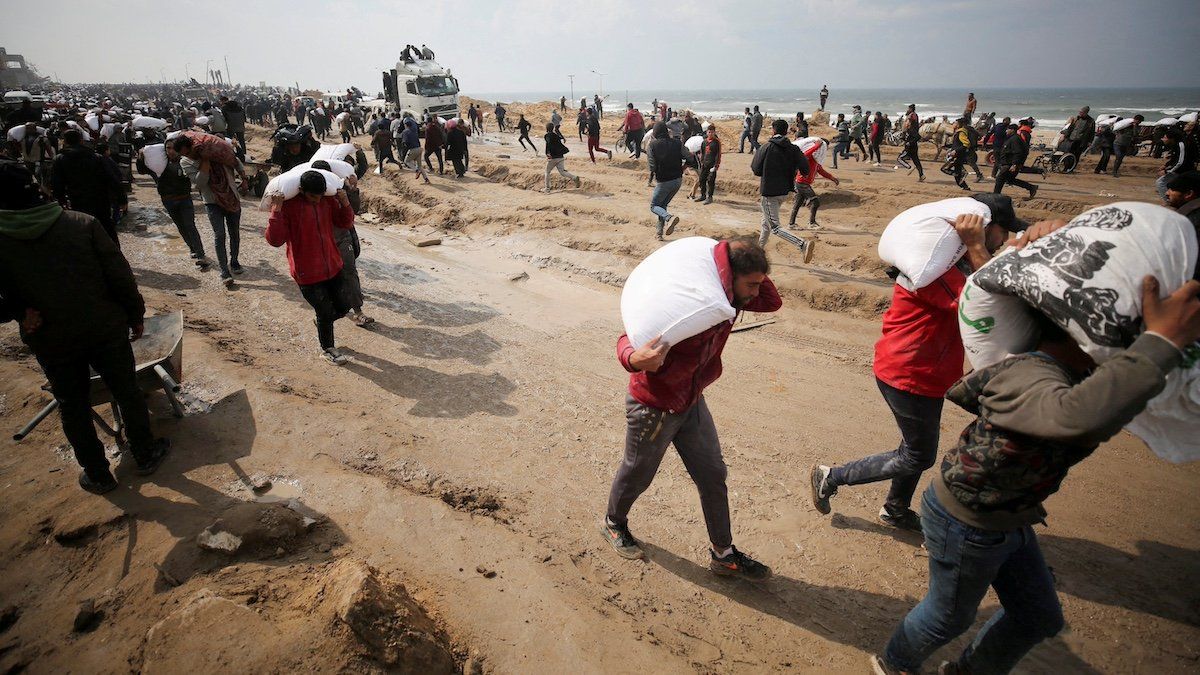The humanitarian crisis in Gaza amid the Israel-Hamas war is dire, and it’s being exacerbated by the convoluted array of logistical and political obstacles that aid organizations are facing.
With nearly two million people displaced from their homes and the specters of starvation and disease looming, here’s a look at the challenges aid organizations face to save lives.
Who’s on the ground in Gaza? Even before Hamas attacked Israel on Oct. 7, the economically-devastating Israeli blockade on Gaza, which is backed by Egypt, left 80% of people in the enclave dependent on international aid, according to the UN.
Between 2014 and 2020, the United Nations spent close to $4.5 billion in Gaza, largely through its agency for Palestinian refugees known as UNRWA. Qatar also provided well over $1 billion in aid to the territory before the war, with Israel’s approval.
The Red Cross, World Food Program (WFP), World Health Organization (WHO), Doctors Without Borders, and the Red Crescent have all also remained active in Gaza during the war in various capacities, but with significant limitations. The WFP, for example, recently announced it is suspending deliveries to north Gaza — where one-in-six children are estimated to be malnourished — due to security concerns such as gunfire and people attempting to break into trucks carrying aid.
A dire situation. As the reported death toll from the fighting in Gaza creeps toward 30,000, an estimated 1.9 million people — over 80% of the territory’s population — have been displaced by the war, more than half of whom are sheltering in the enclave’s south. The UN says the entire population is at risk of famine, while preventable diseases are killing people as the health system collapses.
Israel has placed severe restrictions on the flow of aid into Gaza since the war began, and the military has faced allegations of targeting aid delivery trucks. Prior to the war, roughly 500 trucks entered Gaza per day. From February 1 to 23, an average of 93 trucks per day entered Gaza, and there were seven days when 20 or fewer trucks made it in, according to UNRWA.
“This situation in Gaza is extremely dire because there is no safe place for Gazans to move from — no ‘escape valve,’” says Paul Spiegel, Director of Johns Hopkins Center for Humanitarian Health. “Furthermore, the severe restrictions of basic lifesaving goods into Gaza — fuel, water, food and medicines, combined with the attacks on health facilities — make it very difficult for people to survive.”
Meanwhile, over a dozen countries — including the US — have frozen funding to UNRWA after Israel alleged that 12 of its employees participated in the Oct. 7 attack. UNRWA fired the employees implicated and has launched an inquiry.
Philippe Lazzarini, UNRWA’s commissioner general, on Thursday warned that the agency has reached a “breaking point… at a time of unprecedented humanitarian needs in Gaza.”
If the war in Gaza escalates, more than 85,000 people could die over the next six months on top of the death toll so far, according to projections in a new report from Spiegel and a group of fellow epidemiologists. The report projected that thousands will still die even if a cease-fire is reached.
“UNRWA remains the organization with the biggest footprint and capability to deliver aid in Gaza, by far. If UNRWA reduces its services substantially, many more people will die,” says Spiegel.
